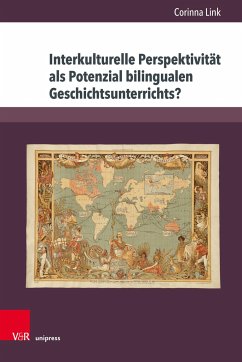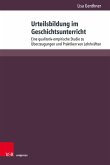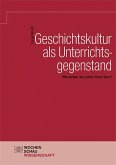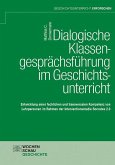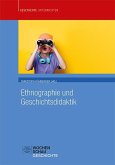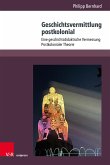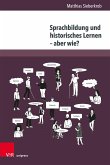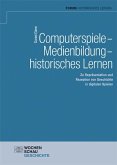Wo liegt das besondere Potenzial bilingualen Geschichtsunterrichts im Vergleich zu deutschsprachigem? Ein Spezifikum ist der durch die Bilingualität konstruierte Blick auf die Vergangenheit, der dem deutschsprachigen einen in der zweiten Sprache konzeptionalisierten zur Seite stellen kann. Anhand des Themas »Imperialismus« zeigt eine Schulbuchanalyse mithilfe des Concept Mapping-Verfahrens Sinnbildungen auf, die im deutsch- und englischsprachigen Rahmen vorherrschen. Ob bilingual unterrichtete Schüler_innen beide Konzepte eher wahrnehmen, zwischen ihnen differenzieren und unter ihnen koordinieren können als deutschsprachig unterrichtete, zeigt eine an diese Schulbuchanalyse anknüpfende, repräsentative Fragebogenstudie.
What is the special potential of bilingual history teaching? One specific feature is that the past is explained not only in one but in two languages. From a constructivist point of view, bilingualism may thus lead to more than one understanding of what, in which ways and why something happened in the past. As a schoolbook analysis shows, "Imperialism" is a great topic to identify different language-inherent concepts of the past. Concept Maps reveal mutual and divergent German and English remembrance cultures. A representative questionnaire study that is linked to this textbook analysis asks, whether bilingually taught students are more likely to perceive both concepts, to differentiate between them, and to coordinate among them than students taught in monolingual German history classes.
What is the special potential of bilingual history teaching? One specific feature is that the past is explained not only in one but in two languages. From a constructivist point of view, bilingualism may thus lead to more than one understanding of what, in which ways and why something happened in the past. As a schoolbook analysis shows, "Imperialism" is a great topic to identify different language-inherent concepts of the past. Concept Maps reveal mutual and divergent German and English remembrance cultures. A representative questionnaire study that is linked to this textbook analysis asks, whether bilingually taught students are more likely to perceive both concepts, to differentiate between them, and to coordinate among them than students taught in monolingual German history classes.

